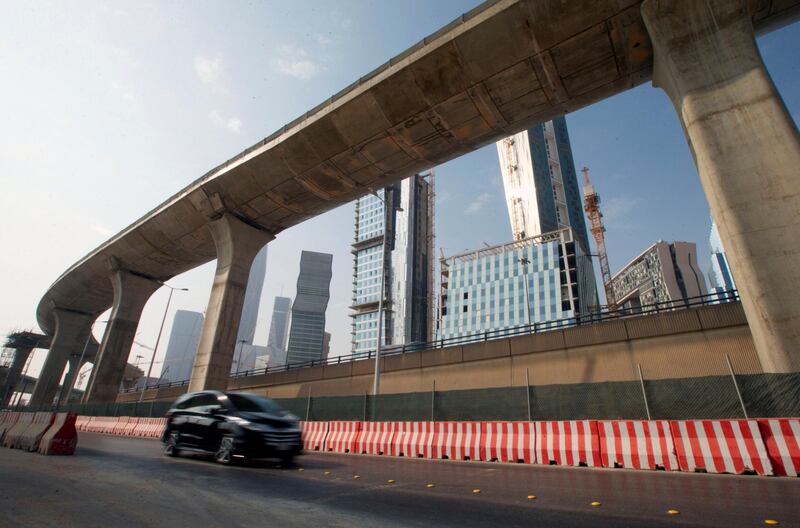The $23 billion (Dh84.48bn) Riyadh Metro is expected to help increase demand for homes across the Saudi capital and boost the value of property in secondary neighbourhoods, reviving the kingdom's residential market.
The 176-kilometre metro can potentially drive up the value of real estate in the Saudi capital with the improved transport connections when it starts operating in 2019, according to a report by property consultancy Knight Frank published on Sunday.
“The Riyadh Metro is set to have a marked effect in relation to real estate dynamics and the ability to spur meaningful urban regeneration,” said Raya Majdalani, research manager at Knight Frank.
The metro, which has six lines and 85 stations running with driverless trains, will be the biggest mass-transit system under development, according to Saudi officials. It is part of the kingdom’s wide-ranging plan for economic and social reform.
The availability of metro connections could lead to a more defined outer boundary for Riyadh and therefore boost the value of locations that have typically been seen as secondary areas, creating future “value hotspots”, the report said.
The mixed-use developments around major metro hubs could also meet the growing demand by the country's young population for smaller and more affordable homes, according to Knight Frank.
The shift in demand away from villas to smaller units with good transport connections is driven by young Saudis whose tastes are fast-changing and in line with global trends towards smaller households.
In 2017, the Saudi market weakened because of this change in demand that was mismatched with a supply of villa accommodation, according to the consultancy.
“With demand shifting away from villa stock towards more affordable, smaller units, mixed use urban regeneration around key metro hubs could respond to this growing market segment,” the report said.
Smaller homes close to public transport are more affordable than villas and this will assist young Saudis who will need home financing.
__________________
Read more:
[ Riyadh metro mega-project to be fully operational by 2021 ]
[ Riyadh metro to auction station naming rights ]
__________________
“As social norms change within the kingdom, the move away from the family home is coming earlier in each generation,” the report said. “Given the Kingdom’s young population dynamics, this only stresses the requirement for such stock.”
The push for mass-transit systems also has wide-ranging implications for the city’s real estate market in terms of land use, new projects, additional investments and revival of third-tier urban areas, according to the report.
Investments in infrastructure will open up previously under-used land for both residential and commercial use.
As public transport extends through the city, new real estate projects may rise in previously poorly connected or secondary locations. These neighbourhoods are expected to benefit and have the potential to outperform the rest of the market.
The Riyadh Metro will cut journey times across the capital, open up new markets and improve connections in existing ones, the report said.







